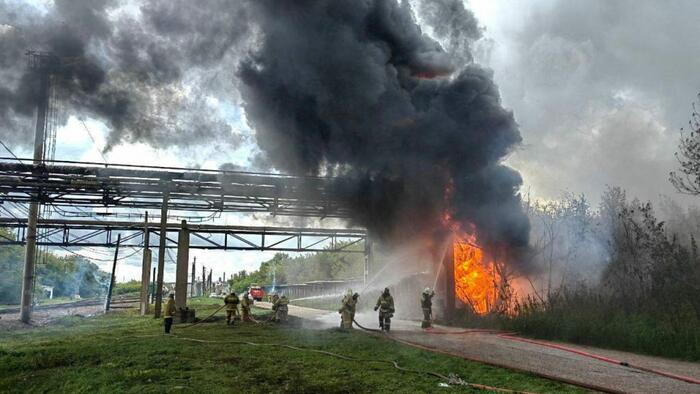In a surprising and significant move, Ukrainian President Volodymyr Zelensky has articulated a possible first step toward a ceasefire between Ukraine and Russia. Speaking from Kiev, Zelensky suggested that both nations could agree to halt aerial attacks on energy infrastructure and cargo ships, a measure he believes could initiate negotiations to end the ongoing conflict. As reported by the Financial Times, Zelensky stated that achieving cooperation in areas concerning energy security and freedom of navigation would signal Russia’s readiness to consider ending hostilities. This development marks a notable shift in the dialogue surrounding the war, especially as winter approaches and the Ukrainian populace faces dire conditions exacerbated by ongoing energy crises due to frequent blackouts and a severely damaged power grid.
The backdrop to Zelensky’s remarks underscores the programmatic focus of Russian aerial strikes over the past year, which have aimed directly at dismantling Ukraine’s critical energy infrastructure. Reports indicate that about 60% of Ukraine’s power generation capabilities have been incapacitated because of these relentless attacks, primarily on thermal power plants. Consequently, Ukraine has become increasingly reliant on its nuclear power resources and energy imports from European partners to meet its energy needs. Simultaneously, Ukraine has implemented cross-border drone assaults on Russian military installations, oil facilities, and ammunition storage sites, attempting to counterbalance its own vulnerabilities in the energy war. Despite these efforts, the overarching impact on Russia’s energy infrastructure has been marginal, suggesting that the conflict remains heavily lopsided in favor of Russia’s strategic posturing.
Interestingly, Zelensky’s call for a truce on energy attacks comes against a backdrop of heightened tensions that have made the prospects for meaningful negotiations appear bleak. Recent developments indicate that both sides have adopted more aggressive postures rather than pursuing diplomatic avenues. In the eastern Donbas region, Russian forces are reportedly advancing, exposing the increasing challenges Ukraine faces with manpower shortages. Such developments question the viability of proposed negotiations, especially in light of significant differences in military effectiveness on the ground. Furthermore, recent remarks from officials illustrate that a direct dialogue is becoming less probable, creating a complex backdrop for reassessing approaches to peace.
Zelensky’s potential proposal to mutually refrain from attacking energy sites aligns with his broader “victory plan,” which has experienced lukewarm responses from Western allies, including NATO officials. It suggests a noteworthy pivot in Ukraine’s strategic thinking, moving from an all-out offensive to the consideration of negotiations—a shift catalyzed by exhaustive military engagements and mounting pressures on Ukraine’s military forces. The perceived failing of the “victory plan,” as characterized by sources like The Economist, indicates a potential reevaluation of Ukraine’s strategies in light of current realities. Hence, Zelensky’s recent overtures may signal a new willingness to engage with Russia, which marks a stark departure from his previous stance of rejecting negotiations with President Putin.
Moreover, the signals emanating from Western allies suggest a possible shift in strategic support for Ukraine, emphasizing the need for diplomacy over continued military escalation. In previous instances, Zelensky had staunchly refused to enter negotiations while Putin remained in power; however, the evolving situation reflects a growing recognition that military solutions may not yield the desired outcomes without substantial support from international partners. This recognition underscores the deepening complexities of Ukraine’s conditions on the ground, highlighting the urgency of reassessing diplomatic options, particularly as winter looms and the potential humanitarian crisis intensifies.
Ultimately, Zelensky’s remarks and the accompanying context represent a crucial moment in the ongoing conflict between Ukraine and Russia. The call to halt attacks on energy infrastructure may signify a pivot towards engagement, potentially laying the groundwork for a negotiated settlement to the conflict as winter pressures mount on the Ukrainian population. Although challenges remain significant, including military shortcomings and internal divisions surrounding the approach to negotiations, Zelensky’s newfound willingness to entertain discussions with Russia underscores a critical juncture that could shape the future trajectory of both nations and their ongoing struggle for resolution. The path forward, however, will depend on the responsiveness of both Moscow and Kyiv to the evolving dynamics of war and peace amid persistent global scrutiny.

